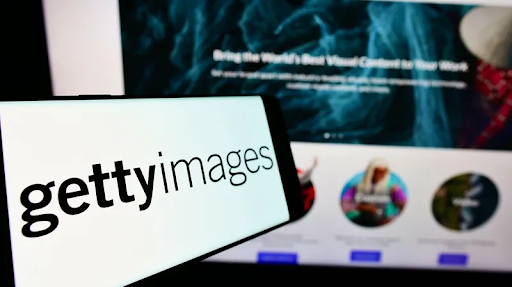Getty Images has banned the submission and sale of artwork created using Al-generated image synthesis models such as Stable Diffusion, DALL-E 2, and Midjourney on its platform.
The user-generated platform follows sites including Newgrounds, PurplePort, and FurAffinity in the decision to ban Alternative Intelligence-generated illustrations. This makes Getty Images, the largest visual media company put such a ban in place.
The CEO of Getty Images Holdings Inc, Craig Peters states that the company has real concerns concerning the copyright of Al-generated content, as well as unaddressed rights issues concerning the imagery, the image metadata, and those individuals contained within the imagery.
He said given these concerns, selling AI-generated artwork or illustrations could potentially put Getty Images users at legal risk. And insists that the platform is simply looking out for its customers and that AI-generated images might not be in their best interest.
Getty states that this ban does not prevent the submission of 3D renders nor does it prevent the use of any digital editing tool, such as Photoshop or Illustrator.
Read also: Meta Company Accuses Facebook of Alleged Trademark Infringement
Why is Getty Images doing this?
It is worth stating that photographs are strongly protected under the law. The original elements are everything from the angle, lighting, focus, composition, exposure, and so on of the subject. A copyrighted photo of a Laundromat doesn’t restrict anyone else from photographing Laundromats generally or that particular Laundromat; only from reproducing that same set of factors chosen by the original photographer.
This explains why you can take a picture of a famous landscape from the same spot as a famous photographer, and the picture is yours, but copying a print of the original photograph and trying to sell it can get you in trouble.
The reality of it is that copyright is complicated, and by design, questions of fair use are handled on a per-case basis. There’s a four-point balancing test applied every time, and there’s no streamlined way of weighing one as more important than the other.
1) The purpose and character of your use
2) The nature of the copyrighted work
3) The amount and substantiality of the portion taken
4) The effect of the use upon the potential market.
There’s, as yet, no clear-cut answer to whether AI-generated art does violate artist copyright protections.
What users should know
The creators of AI-generated images say the technology is legal, but the jury is still out on this. Software like Stable Diffusion is trained on copyrighted images scraped from the web, including personal art blogs, news sites, and stock photo sites like Getty Images. The act of scraping is legal in the US, and it seems the output of the software is covered by the “fair use” doctrine. But fair use provides weaker protection to commercial activities like selling pictures, and some artists whose work has been scraped and imitated by companies making AI image generators have called for new laws to regulate this domain.
When asked if AI-generated content was a threat to the livelihoods of illustrators and photographers who sell their work on Getty Images, the CEO of Getty Images Holdings Inc., Craig Peters, suggested that these tools were just the latest example of technology expanding the amount of available imagery.
“The world is already awash in imagery. Digital cameras have generated exponential growth in imagery given the reduced cost and simplicity of capture, transmission, and use. The introduction of the smartphone and social media took this to all new levels, with trillions of images taken and posted,” said Peters. “Our business has never been about the ease of creating imagery or the resulting volume. It is about connecting and cutting through. ”
Peters says Getty Images will rely on users to identify and report such images, and that it’s working with C2PA (the Coalition for Content Provenance and Authenticity) to create filters. However, no automated filter will be wholly reliable, and it’s not clear how easy Getty Images will find it to enforce its new ban.
The platforms that sell artistic images, like Getty, are inherently threatened by AI-generated art. The reason is that there could be less demand long-term for artistic works if people can easily use computers to create fake ones to get across certain scenes or ideas.
Another fear AI-generated content creates, apart from copyright issues, is that artificial intelligence can be used to create images of real people in compromising situations that never happened, and this could lead to defamation lawsuits or worse.
About Getty Images
Getty Images Holdings, Inc. is an American visual media company and is a supplier of stock images, editorial photography, video, and music for businesses and consumers, with a library of over 477 million assets. It targets three markets—creative professionals, the media, and corporate.




